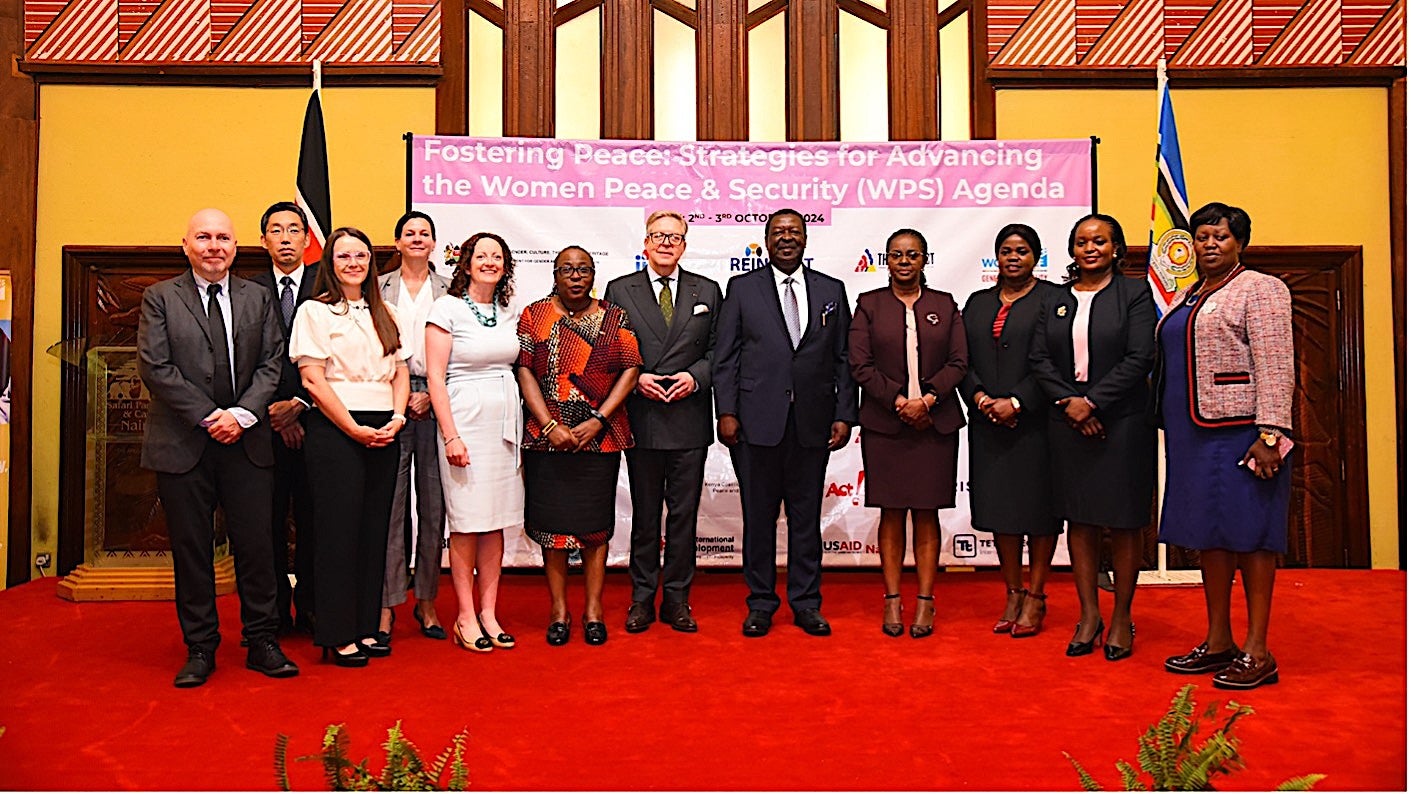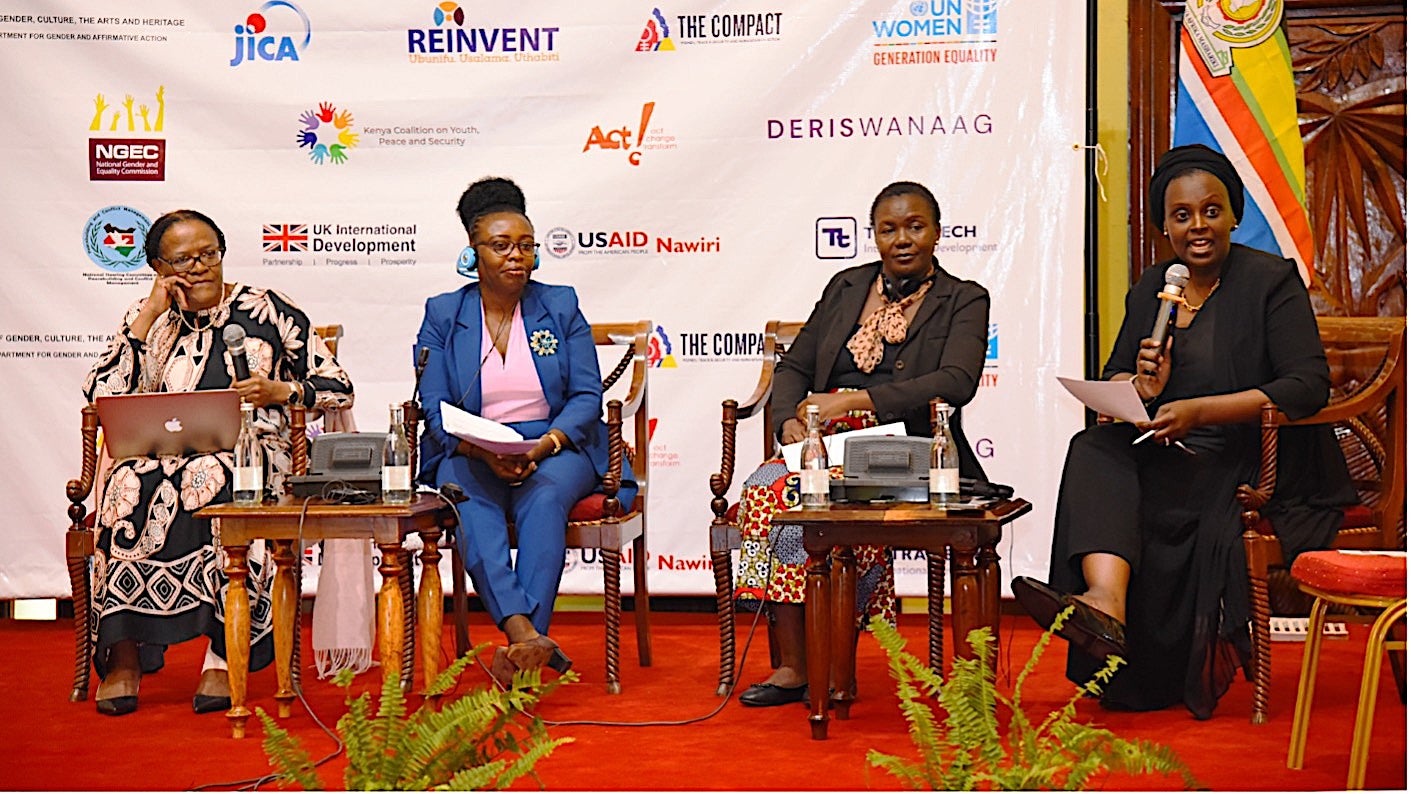A Roadmap for Change: The Women, Peace, and Security Agenda
Date:

As the world faces the challenges of conflict, climate change, and social inequality, the East and Southern Africa region is boldly moving towards a more peaceful and inclusive future.
The Regional Symposium on Fostering Peace and Inclusivity held in Nairobi from 2nd to 3rd October 2024, united leaders, policymakers, and change-makers in conversation about the significance of women's involvement in peace processes and to set a new direction for the region.
Celebrating Progress, Confronting Challenges
The symposium was a celebration on the progress made and a reminder of the remaining challenges. Hon. Musalia Mudavadi, the Prime Cabinet Secretary of the Government of Kenya, speaking at the conference said, "This regional conference comes at an opportune moment when we need to reassert the critical roles women continue to play in conflict resolution. Our collective success as a continent, including achieving the African Union's Agenda 2063 and Silence the Gun by 2030, relies on the meaningful involvement of women in these processes."
“Women continue to bear the brunt of conflict, with violence and marginalization often targeted against them," Hon. Mudavadi added.
Women's Participation in Peace Processes
Anna Mutavati, outgoing UN Women Kenya Country Representative, stressed the importance of women's involvement in peace processes. "When women are meaningfully involved in peace negotiations, the likelihood of lasting agreements increases by up to 35%," she said.
Anna further emphasized the need to break down structural barriers that prevent women from participating in peace processes, citing the example of the Women, Peace, and Security and Humanitarian Action Compact. "We must institutionalize gender equality within all peace and security structures, from policymaking to on-the-ground implementation," she urged.

Amplifying Women's Voice at the grassroot levels
Ms. Hodan Addou, UN Women East and Southern Africa Regional Director a.i. for, reiterated: "We have to work together to make sure that women's voices, particularly those at the grassroots, are heard and amplified in every process of peace and security."
The symposium emphasized young women's roles as drivers of change in advancing the WPS agenda, continuing to call for increased participation and leadership by women in mediation and conflict resolution.
Mobilising Partnerships for Gender Equality
Makoto Shinkawa, Representative of the JICA Kenya Office, reminded the audience, "The challenges we face require collective action; through partnership, we would be able to achieve more impact in ensuring that women are at the forefront of peace and security efforts."
Participants were introduced to the Generation Equality Women, Peace, and Security Compact. This intergenerational movement calls for bold action in advancing gender equality, thereby ensuring better leadership and protection for women and girls in crisis and conflict-affected settings. The Compact seeks to drive progress by increasing investments in identified gaps and challenges for women's participation in peace and security and hence for ensuring gender-responsive humanitarian action.
A Call to Prioritize Women’s Leadership
The symposium concluded with a solid commitment to prioritizing women's leadership in all peace and security efforts across East and Southern Africa. A clear message emerged: the only way forward is to achieve peace and inclusivity through collective action and unwavering dedication.